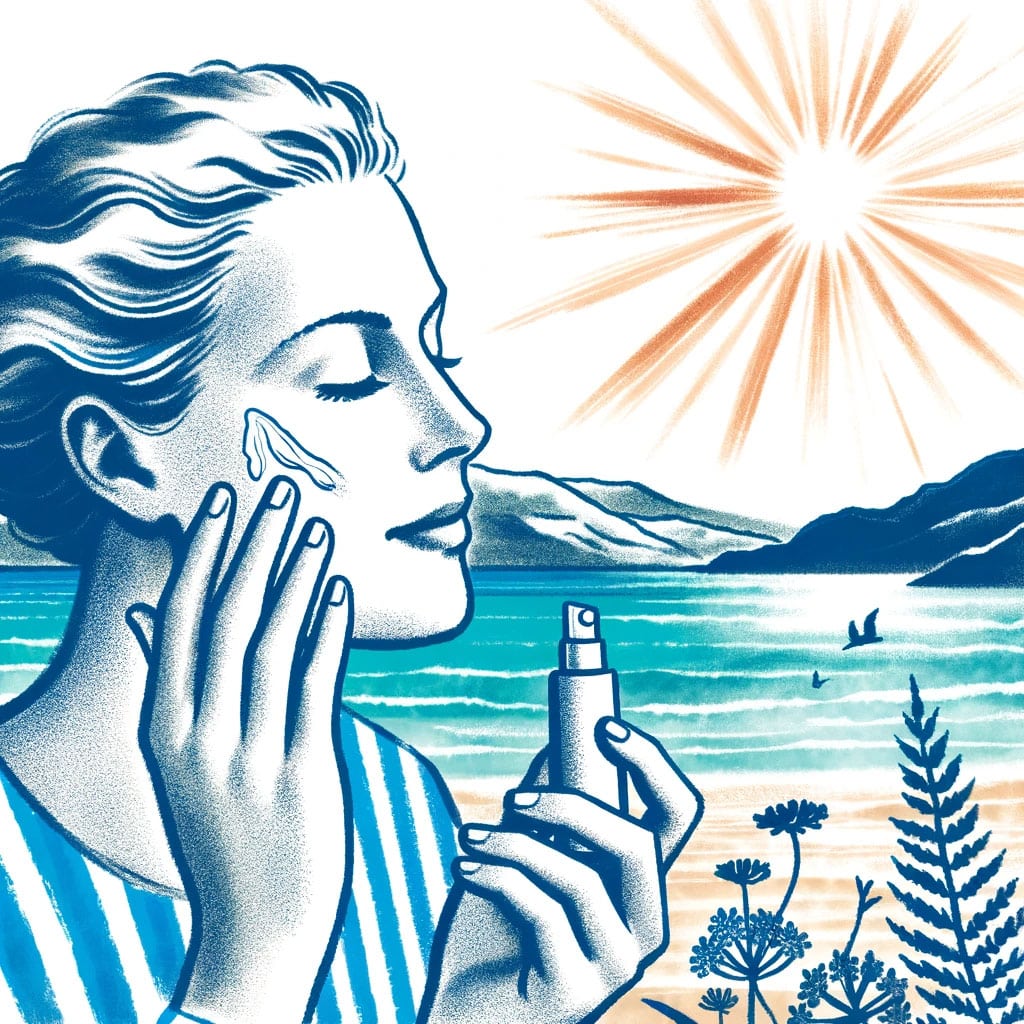Sun exposure has long been a topic of discussion when it comes to managing acne. Some people believe that spending time in the sun can help clear up acne, while others think that it can make it worse.
In this article, we will explore the myths and facts surrounding sun exposure and acne, and provide some tips for managing acne-prone skin in the sun.
Understanding Acne

Acne is a common skin condition that affects millions of people worldwide. It is caused by the clogging of hair follicles with dead skin cells and oil, leading to the formation of pimples, blackheads, and whiteheads. The condition can occur anywhere on the body, but it is most commonly found on the face, chest, and back.
Contrary to popular belief, acne is not caused by poor hygiene or eating greasy foods. While these factors can exacerbate the condition, they are not the root cause. Instead, acne is caused by a combination of factors, including genetics, hormones, and environmental factors.
There are several different types of acne, each with its own characteristics and treatment options. The most common types include:
- Whiteheads: These are small, raised bumps that are white or yellow in color. They occur when hair follicles become clogged with oil and dead skin cells.
- Blackheads: These are small, raised bumps that are black or dark brown in color. They occur when hair follicles become clogged with oil and dead skin cells, and the top of the bump is exposed to air.
- Papules: These are small, raised bumps that are red and inflamed. They occur when hair follicles become infected with bacteria.
- Pustules: These are similar to papules but contain pus. They are often referred to as “pimples.”
- Nodules: These are large, painful bumps that occur deep beneath the skin. They are often the result of severe acne.
- Cysts: These are large, pus-filled bumps that occur deep beneath the skin. They are often the result of severe acne and can lead to scarring.
Treatment for acne depends on the severity of the condition. Mild acne can often be treated with over-the-counter products, such as benzoyl peroxide or salicylic acid. More severe cases may require prescription medications, such as antibiotics or isotretinoin.
Sun Exposure: Myths and Facts

Exposure to sunlight can have both positive and negative effects on the skin. While it is essential to get adequate sunlight for the body to produce vitamin D, too much sun exposure can lead to skin damage, premature aging, and skin cancer.
There are several myths and facts surrounding sun exposure and acne that people often believe. In this section, we will explore some of the most common myths and facts about sun exposure and acne.
Myth 1: Sun Clears Up Acne
Many people believe that sun exposure can help clear up acne. However, this is a myth. While sun exposure can temporarily make acne less noticeable by drying out the skin and reducing inflammation, it does not address the underlying causes of acne.
In fact, excessive sun exposure can lead to more significant skin problems and worsen acne in the long run.
Fact 1: Sun Can Worsen Acne
Excessive sun exposure can lead to skin damage, including sunburn, premature aging, and an increased risk of skin cancer. Additionally, sun exposure can cause the skin to produce more oil, leading to clogged pores and worsening acne.
Therefore, it is essential to protect the skin from the sun’s harmful rays, especially if you have acne-prone skin.
Myth 2: Tanning Hides Acne
Many people believe that getting a tan can hide acne and make it less noticeable. However, this is also a myth. While tanning can temporarily make acne less noticeable, it can also lead to more significant skin problems in the long run.
Tanning damages the skin and can cause premature aging, dark spots, and an increased risk of skin cancer.
Fact 2: Tanning Can Lead to Premature Aging and Skin Cancer
Tanning damages the skin and can lead to premature aging, including wrinkles, fine lines, and age spots. Additionally, excessive sun exposure can lead to skin cancer, which is the most common type of cancer in the United States.
Therefore, it is essential to protect your skin from the sun’s harmful rays and avoid tanning beds.
Effects of Sun Exposure on Acne-Prone Skin
Sun exposure is often considered a quick fix for acne-prone skin. However, the effects of sun exposure on acne-prone skin are not always positive. In fact, some of the effects of sun exposure on acne-prone skin can actually worsen the condition.
Increased Oil Production
One of the most common misconceptions about sun exposure and acne is that it reduces sebum production and limits the appearance of pimples. However, the truth is that sun exposure can actually dry out the skin, even if it is oily. This makes sebaceous glands produce more oil to keep skin moisturized, which can lead to more blemishes.
Skin Inflammation
Sun exposure can also lead to skin inflammation, which can exacerbate acne. UV rays have an immunosuppressive effect, which means that they can weaken the immune system and make it more difficult for the body to fight off acne-causing bacteria. Additionally, sunburn can cause skin irritation, which can lead to more breakouts.
Sun Protection and Acne Management

Proper sun protection is essential for maintaining healthy skin, especially for those dealing with acne. While the sun can provide temporary relief for acne, overexposure can cause long-term damage to the skin. In this section, we will explore the various ways to protect the skin from the harmful effects of the sun.
Choosing the Right Sunscreen
When it comes to choosing the right sunscreen, it is important to look for products that are labeled “non-comedogenic” or “oil-free.” These types of sunscreens are less likely to clog pores and cause breakouts.
Additionally, sunscreens with a high SPF (sun protection factor) of 30 or higher are recommended for adequate protection.
Importance of a Balanced Diet
A balanced diet is crucial for maintaining healthy skin and managing acne. Foods that are high in sugar and processed carbohydrates can cause inflammation and worsen acne. On the other hand, foods that are rich in antioxidants, such as fruits and vegetables, can help reduce inflammation and improve overall skin health.
Staying Hydrated
Staying hydrated is another important factor in managing acne and protecting the skin from the sun. Drinking plenty of water throughout the day can help flush out toxins and keep the skin hydrated, which can prevent dryness and irritation.

